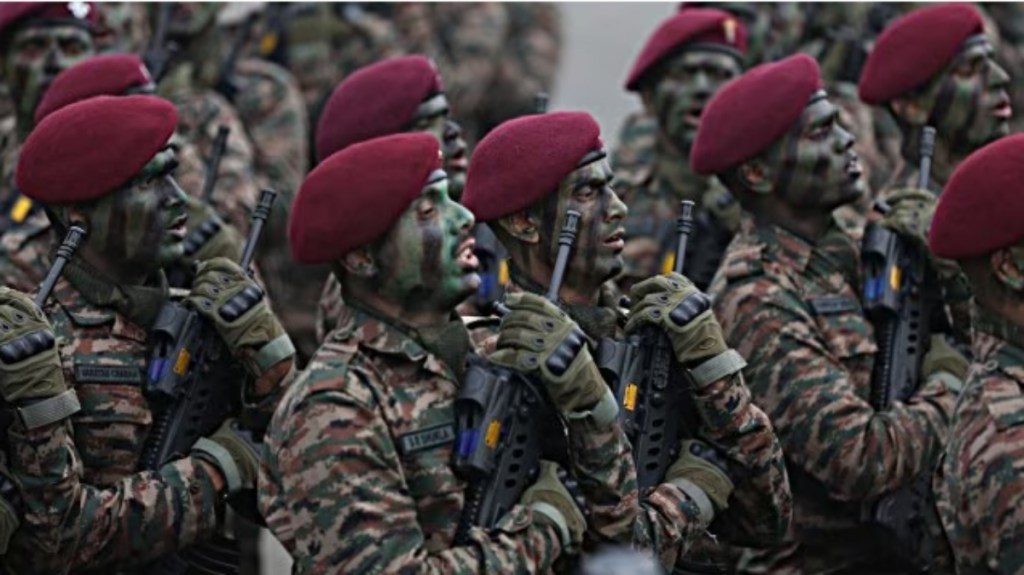The Indian Army is considering a significant shift to enhance border security with China and is planning at converting Headquarters Uttar Bharat (HQ UB) into the XVIII Corps to counter potential threats along the Line of Actual Control (LAC). This strategic move aims to improve deployment speed and operational efficiency.
According to sources in the defence and security establishment “The proposal to establish the 18 Corps is under review and will soon be sent to the Ministry of Defence for approval.”
Former Army Commanders, including Lt Gen RC Tiwari and Lt Gen JP Mathew, have supported this initiative, emphasizing the need to adapt to the evolving security landscape.
Previously, the Uttar Bharat area had limited military presence, with only one brigade and scout battalions. However, recent developments along the LAC have prompted the need for enhanced combat capabilities, leading to the establishment of three independent brigades and an infantry division.
Support for the proposal comes from various quarters, including former Army Commanders such as Lt Gen RC Tiwari, Lt Gen JP Mathew, and Lt Gen NS Rajasubramani. They emphasize the importance of adapting to emerging security challenges and assert the need for organizational restructuring to bolster India’s defensive capabilities along the LAC.
If implemented, the XVIII Corps is envisioned to comprise a division and three independent brigades, strategically positioned to monitor and respond to security threats along the border. This reorganization reflects India’s proactive approach to addressing regional security concerns and underscores its commitment to maintaining peace and stability in the region.
Historically, the Uttar Bharat region had a limited military presence, with only one brigade and scout battalions tasked with border surveillance. However, recent escalations in tensions with China have necessitated the augmentation of combat capabilities, prompting the addition of three independent brigades and an infantry division to strengthen border defences.
The proposed establishment of the XVIII Corps holds significance amid growing security challenges in the middle sector, exacerbated by confrontations in areas like the Galwan Valley. Strengthening infrastructure and operational readiness in border regions such as Uttarakhand is crucial to deterring potential threats and ensuring territorial integrity.
The formation of the XVIII Corps would complement existing corps responsible for border security, potentially increasing their number from five to seven. This expansion underscores India’s commitment to proactive defence planning and its determination to respond effectively to emerging security threats.
While most border disputes between India and China are straightforward, certain areas, including Barahoti, remain contested. Diplomatic efforts continue to resolve such disputes peacefully, emphasizing the importance of maintaining stability and cooperation along the border.
Overall, the potential conversion of HQ UB into the XVIII Corps represents a proactive measure by the Indian Army to strengthen its defence infrastructure and enhance its operational capabilities along the Chinese border. It underscores India’s commitment to maintaining peace and stability in the region while addressing evolving security challenges.


